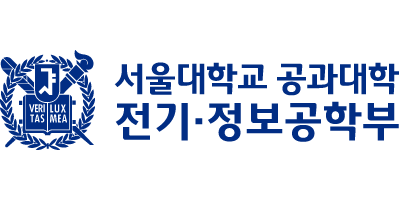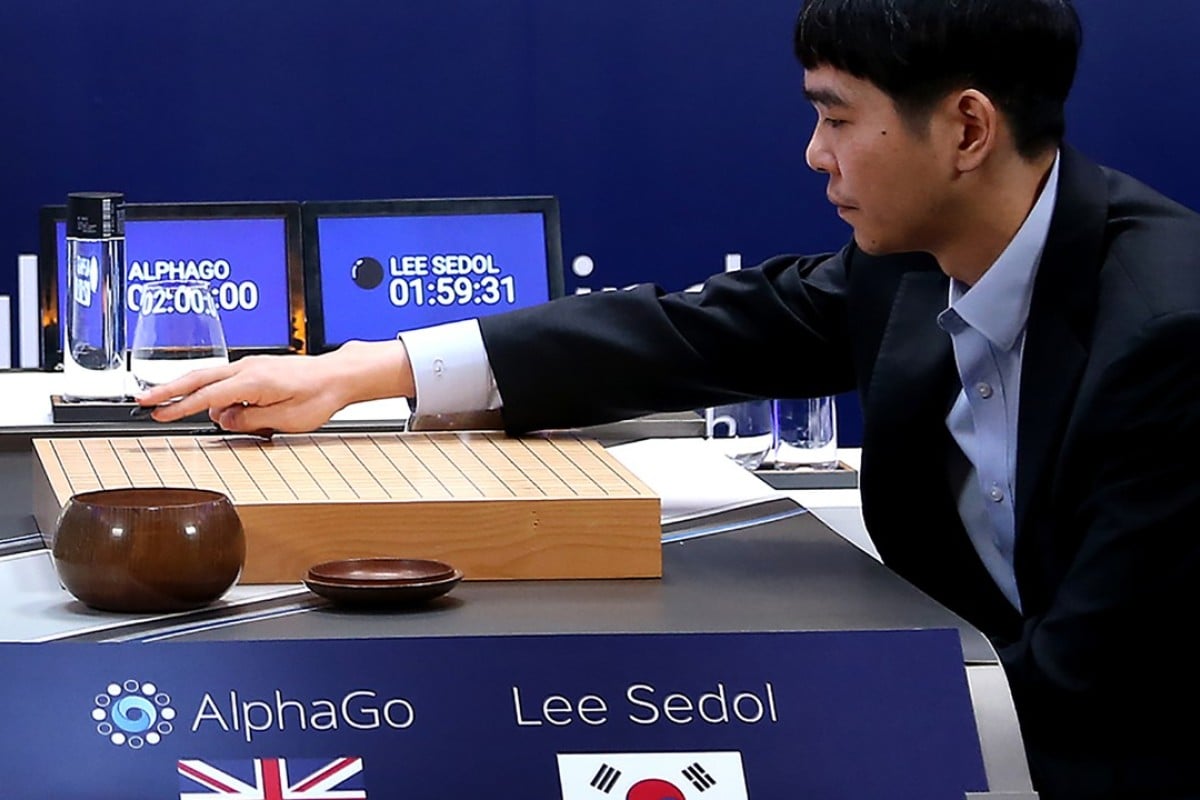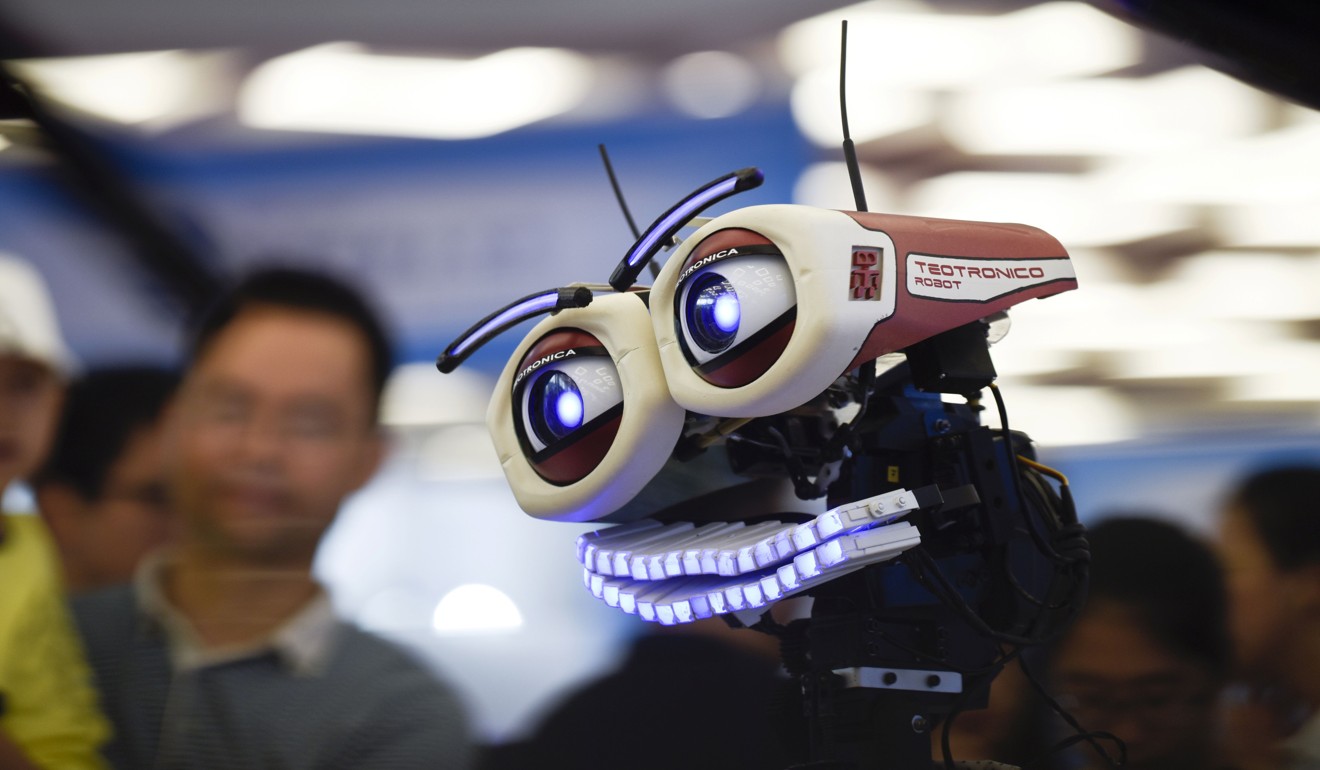No one has ever accused South Korea of lacking in national pride, so when Google’s AlphaGo artificial intelligence (AI) soundly defeated its Go master Lee Se-dol at his own strategic board game, the nation sat up and took notice.
“Watching Google’s AlphaGo AI eviscerate Korean grandmaster Lee Se-dol put the nation into shock,” New Scientist reported on March 15, noting South Korean headlines such as “The ‘Horrifying Evolution’ of Artificial Intelligence” and quoting JoongAng Ilbo’s lead Go correspondent, Jeong Ahram: “Last night was very gloomy. Many people drank alcohol.”
Suddenly everyone was talking about AI, and electronics companies quickly picked up the term to help sell virtually anything with a computer chip in it, from Samsung’s AI refrigerator to LG Electronics’s AI washing machine.
A robot called “Teotronico” plays the piano and sings at the 2017 World Robot Conference in Beijing. Photo: AFP
Amara’s law, an adage named after systems engineer Roy Amara who said people tend to overestimate technology in the short-run but underestimate it in the long run, seemed to be in effect.
But the hype isn’t just a marketing gimmick. Several major companies are doing serious research and development in the field. Last month, Kakao, the country’s top instant messaging company, teamed up with Hyundai Motor, its top carmaker, to develop AI technology. In June, LG Electronics created an AI research lab and Naver, the country’s top web portal, held a Silicon Valley networking event for AI talent.
Also, Seoul National University’s department of electrical and computer engineering, in partnership with SK Telecom, the country’s largest wireless carrier, will train students in AI theory starting this month.
All of this is in anticipation of the so-called Fourth Industrial Revolution, which proponents say differs from the third, digital revolution in its emphasis on AI technology. Some speculate this could affect the Korean economy as much as its shipping, automobile and electronics industries.
South Korea entered the electronics industry in the late 1950s by assembling imported radio parts. Its per capita gross domestic product was US$92 in 1961, less than Cambodia and Bangladesh.


 Lee Se-Dol, one of the greatest modern players of the ancient board game Go, makes a move during the third game of the Google DeepMind Challenge Match against Google-developed supercomputer AlphaGo in Seoul. Photo: AFP
Lee Se-Dol, one of the greatest modern players of the ancient board game Go, makes a move during the third game of the Google DeepMind Challenge Match against Google-developed supercomputer AlphaGo in Seoul. Photo: AFP
